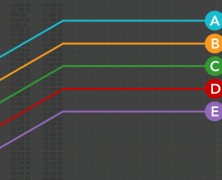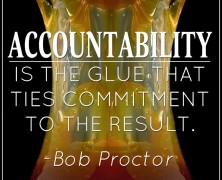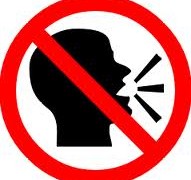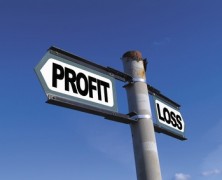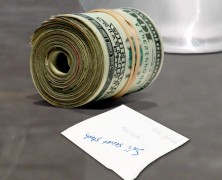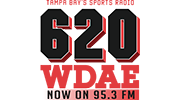Whether betting on gut instinct or backed by data-logged spreadsheets, bettors’ primarily focus on who to back. According to one prominent mathematician, however, if they want better returns, they should be more concerned with what they bet. Read on to learn one way to improve your staking. Click here to read full article My take: There are no absolutes when it comes to developing a sports betting strategy. Profit is king while everything else becomes secondary. No formula nor self help manual guarantees success. Bettors needs to learn from experiences, compiling tools of the trade along the way through trial and error. Everyone from the most seasoned professional to the greenest novice employs a different method to exploit perceived edge albeit with different levels of achievement. I’ve always harped on money management being as important (if not moreso) than identifying winners because you can’t put winners in the bank. Understanding when to bet is one skill, understanding how much to bet is a different skill set entirely. In this staking article penned by the talented writers at Pinnacle, five different bankroll techniques are highlighted for their pros and cons. 1) Bet everything, every time 2) Fixed Wager 3) Martingale 4) Fibonacci 5) Proportional Betting Gaining a grasp on how to handle your roll stems from comprehending the sportsbook’s primary objective: keeping bettors in action. Patience is a virtue in sports handicapping. There’s no shame in sitting idle, passing on games when an advantage doesn’t exist. Try to master a bankroll approach that works best for your goals. For every bettor I’ve witnessed that employ’s Kelly to the letter of the law, there’s another one out there still spouting the value of flat betting at all costs. Profitable sports betting doesn’t come easy. Always...
Bankroll Building
posted by Todd
One of the most commonly asked questions by those just getting started in sports betting is “How much money can I make betting games?” Honestly this shouldn’t be the most prescient query. Instead, ask yourself how much money you can afford to lose…before you learn to win. Wait, say that again: gamblers need to learn to lose before they can become consistent winners. Before I explain a statement that won’t resonate initially let me rehash a scene from an underrated Mel Gibson movie called Maverick. During the flick there’s a scene where Gibson’s character sits down at a poker table and offers to lose for an entire hour. Of course the other gamblers don’t understand his objective, instead viewing him as a mark welcoming his square money. After the hour of losing Mel Gibson flips the script. Having learned the tells of each poker player through careful observation he’s in a position to not only recoup the cash he lost but also walk away profits. This scene reminds me of the learning curve sports bettors are forced to endure. Before you learn to win by identifying edge, there are extended rough patches where growing pains are inevitable. Whether it’s having limited outs, taking bad numbers, or having no idea which way the market’s going to move there will be losses initially that are easily prevented with experience. By learning what doesn’t work as a sports bettor initially you become better equipped to know what does in the future. I always try to make it clear to new gamblers getting started that they should temper expectations by setting aside money they can afford to lose. No, this isn’t a doomsday prophecy implying every bankroll will end up at zero however the probability of a losing...
Bankroll Building
posted by Todd
There are many ways to measure success as a sports bettor. Actually, that’s entirely fiction: the health of your bankroll is the only measuring stick that needs to be kept in this business. Before you get fired up over there telling me I’m an idiot, that statement isn’t meant to imply we all can achieve the same success as the world’s elite betting groups because everything is relative. However, there are a few tracking metrics that resonate the same way with recreational bettors as they do with the professionals. Lets first bust a myth that drives me absolutely nuts in this field: people hell bent on determining the success of their sports wagering purely by win percentage. Assuming traditional -110 juice on every bet, the required percentage to break even is 52.38%. What the experts fail to tell you is that you’ll probably be able to count on one hand the number of successful bettors that lay traditional 11/10 on every single wager. We’ve all heard that 60% is the supposed gold standard but there’s noise in that number as well unless you bet the exact same amount on every game…which of course is a long term losing strategy. In my opinion the only time winning percentage needs to enter the equation at the forefront of this discussion is sports betting contests where everyone competes on a level playing field. Ok Todd, enough with the negativity bullshit, tell us something we can use. For my wagering purposes (and there will be disagreement) I determine overall success through a ROI (return on investment) calculation. Now, there’s more to this ROI discussion than a simple equation, especially when it comes to how you calculate your figures. For those that have a set bankroll, which everyone should,...
Bet Tracking
posted by Todd
We’ve all been there before, trying to find clarity while stuck in our gambling haze “Dude, where’d that money go?” It’s the biggest pitfall I see from recreational bettors; remembering their wins while conveniently forgetting losses creating an inaccurate snapshot of how their bankroll looks at any moment in time. Whether the preferred method is a spreadsheet spreadsheet, legal pad, or scrap paper the most successful bettors track every single wager through both good times and bad. Keeping tabs on where your gambling dollar goes is no different than monitoring any other aspect of personal finances. Knowing your expenses (losses), revenues (wins), and savings (bankroll) builds a strong foundation of good habits early on that will pay dividends later as a sports bettor. Trust me, there’s no more humbling experience than inputting losses into your balance sheet to indirectly teach you about discipline and selectivity. Fortunately now there are easier ways to track every dollar wagered than ever before thanks to innovative apps making their way into the market. We all know your neighborhood bookie or offshore doesn’t want you to have a perfect ledger of your year to date figures but if long term success is what you aspire to (even as a hobby) you’ll want to be proactive. One product I actually recommend is Winafy because the application does the heavy lifting for you, syncing with most offshore books making tracking easier than ever. The product is still going through some developmental changes, mainly to address it’s biggest remaining flaw the inability to work compatibly with every PPH interface. Here’s an article that appeared on their website raising good points about the benefits to tracking all of your bets and would encourage you to experiment with their free trial. **Note: Next week...
Accountability
posted by Todd
We’ve all been there before: on the losing end of a bet looking to the heavens for an explanation of why (insert player here) did what he did or how an official could possibly make “that” call when we had money on the game. It’s human nature: blame others for decisions you make that don’t work out exactly as you’d like. Rather than digging into the boxscore and reading the recap to see where our handicap of a particular game went wrong, our god complex forces us to rationalize the outcome. A god complex is an unshakable belief characterized by consistently inflated feelings of personal ability, privilege, or infallibility. A person with a god complex may refuse to admit the possibility of their error or failure, even in the face of complex or intractable problems or difficult or impossible tasks, or may regard their personal opinions as unquestionably correct.[1][2] The individual may disregard the rules of society and require special consideration or privileges Allowing this thought process to ruminate is beyond dangerous. Projecting blame onto others prevents us from trying to correct our own mistakes. Claiming circumstances beyond our control contributed to an undesirable outcome is an easier defense mechanism than becoming accountable. Hey guys and girls: if you can’t handle random sequences of events that you don’t impact directly I suggest spending those recreational dollars on golf, leave sports betting for the professionals. Learning to become accountable, in both wins and losses, is a sign of maturity in a bettor. However, mastering this thought process is one few will ever learn. Accountability in wagering forces bettors of all ability levels to learn from their mistakes if the end game is becoming better at your craft. Blaming officials, players, or handicappers on twitter for...
3 Dirty Words
posted by Todd
Sports gamblers are a lot of things. The adjectives used to describe a segment of the population that enjoys wagering on sports are rarely favorable. Come to think of it, I’ve never heard a gambler described as altruistic or philanthropic instead it always comes out selfish or degenerate. Amazing how that works when you compare the stockbrokers you know to bettors…I digress though. However, that’s not the point I’m trying to make here, defending gamblers will have it’s place but my goal is to get you to avoid adjectives that would describe betting behaviors deleterious to one’s bankroll. If any of these adjectives are used to describe the way with which you approach betting (even in a recreational capacity), there could be some real problems brewing underneath the surface just waiting to boil over. Greedy To quote the immortal Gordon Gecko “Greed is Good.” As a bettor though you have to ask yourself at what price am I going about achieving this level of greed. Don’t think for a second the implication here is that wanting to win every single bet you make is greed, not the case in the least. This is more about staying the course as a bettor being imperative for sustaining long term success. There’s nothing wrong with pushing during a hot streak (we all do it at the blackjack tables) but keep it within reason. Don’t take a position 5x your normal stake if a loss sets you back to square 1…in Lehman’s terms don’t take everything you’re up for a week during football and let it ride on the Sunday or Monday night game. Greed also manifests itself when we start seeking out egregious book errors, hoping offshores or land based casinos won’t catch on to your devious ways. Unfortunately this...
Handling Loss
posted by Todd
It’s the darker side of sports betting: the part no one in the industry ever wants to discuss beyond a short discussion that’s always better served for another day. Handicappers, bookmakers, pick sellers, weekend warriors; no one likes the serious dialogue centered around losing bets and the strategies we employ to get through the rough patches. Every conversation I’ve had in this business always starts with delusions of grandeur and questions like “how much money can I win quickly or can I turn a 500 buck bankroll into 5k inside a month” rather than the most important question: how much money you can afford to lose while trying to win? The reality of betting sports is that 98% of the population will lose long term and even the best gamblers in the world are forced to cope with slumps throughout the journey to the top. Remember this: a bettor who says he never has a losing day, losing week, or losing month can’t be trusted. We’re all familiar with the golden ratio of 52.4% as the break even mark in sports assuming the traditional -110 lines with a flat bet on every (which you should never do but that’s a discussion for another day). Even if you’re among the top 1% and win 55% of the time, that still leaves 45 out of 100 bets that don’t end with the desired outcome. The goal is as much about maximizing earning potential when you’re running well as it is about minimizing losses when cold spells hit. We’ve all been there before, mired in a funk we think will never end while grasping for straws unsure of our own handicapping. Recognizing the losing skid is imperative for self conservation; knowing when to scale back volumes waiting...
Money Management
posted by Todd
Being a successful sports bettor is as much about managing your bankroll as it is picking winners. Knowing when to press your bets or scale back separates the serious bettor from his/her counterparts. I figured it only made sense to share a few of my thoughts on the topic including an explanation of why everyone needs to have a basic understanding of the Kelly criterion before ever placing a single wager. As March Madness approaches, it’s the right time to start building your...
TIMBER
posted by Todd
One of the most common betting mistakes is to confuse specialist knowledge in sports with a specialty in sports betting. This error is illustrated by the proliferation of ex-professional sports stars that become betting tipsters or self-proclaimed experts, and is neatly described by the “Green Lumber Fallacy”. One of the most successful traders to ever buy and sell green lumber – which is freshly cut wood – actually had no idea what he was trading. He spent his entire green lumber career believing the product was just wood painted green, and not newly cut trees. The term “Green Lumber Fallacy” was coined by Nassim Nicholas Taleb in his recent book ‘Antifragile’, where he outlined a second similar situation: a star Swiss Franc trader who’s inability to locate Switzerland on the map didn’t hinder his ability to make money trading its currency. To read the full article click here Todd’s Take: Rarely do you see a topic this important articulated as well as it has been in this article. One of the biggest misconceptions in betting is that just because you never played a sport, don’t know every player, and can’t recite a laundry list of stats you’ll never be successful betting it. Does having all these tools help you long term? To a certain extent yes but paralysis by analysis is a very real challenge every bettor has had to overcome at some point in his career. I talk to fans all the time that know their teams inside and out yet couldn’t pick a winner in those games if their lives depended on it. If only knowing teams made for successful bettors every beat writer would be rich given his insider access to a particular team. Part of what makes bettors successful is...
Bankroll Building
posted by Todd
Building a Bankroll Before sports bettors even get started in this business bankroll building should be a major consideration. I can sit here and talk about money management at great lengths however before that becomes relevant a bettor needs a starting point before this makes any sense. I’ve learned the hard way first hand, trying to forge a path as a sports bettor (beginning back in junior high) figure out what works and what won’t for long term success. For our purposes here let’s start at the top and go through basic questions we should be asking ourselves, even as a recreational bettor, before embarking on this journey. How much money can I afford to lose? This may seem like an absurd question to ask when getting started but I feel it’s the most important. Everyone can always afford to make more money however what are you able to lose comfortably (I use the term loosely) without it having major repercussions on your day to day. Everyone’s bankroll is different; some start with 500, others can afford 1000, while there are people out there using 10,000 as their jumping off point. My single best piece of advice is to start with an amount that won’t change your day to day operating under the assumption you’ll be losing this amount by year’s end. Figure this is the discretionary income you’d be willing to spend on rounds of golf or any other recreational pursuit. How much should I bet? Once you have a set bankroll amount you can begin to figure out what your betting units need to be. Kelly Criterion is a useful math driven technique for beginners and veterans alike meaning your bet size will fluctuate with the size of your bankroll. Of course...
Attacking Futures
posted by Todd
Futures bets are all about finding value. Striving to find a diamond in the rough and investing your money into it before everyone else realizes it’s potential and drives the value down. I bring this up because as we pass the halfway point of the college basketball season, I feel it is as good as time as any to take a peek at my futures bets, figure out why I placed them, and compare the odds I got to the odds each team opened with way back when. I warn you, the results might not be pretty. ** LVH future prices from the last week of October were used as opening odds for this column** Iowa (My price: 40/1 Opening Price: 100/1 Current Price: 30/1): Starting off hot with a future that has less than half the value of its opening price! I remembering placing this bet right before they played Wisconsin. Why you ask? Well leading up to that game, lots of “sharps” on Twitter had been talking up Iowa as not only a team that could upset undefeated Wisconsin but as a team that could do damage come tournament. Reading all that and seeing they were still available, a Top 25 team, at 40/1, I figured I had uncovered a steal and placed the bet. Now could Iowa but together a run come March allowing me to profit off this future? Absolutely, but I would feel a lot better sitting with 100/1 than 40/1. Iowa St. (My price: 100/1 Opening Price: 100/1 Current Price: 35/1) I’ve always liked Iowa St. I really have no clue why, I grew up in the Southeast, but something about Ames has always made me a fan. So imagine my happiness when I saw Iowa St. sitting...
Don’t do THAT on Twitter...
posted by Todd
Twitter is an endless source of joy, entertainment, and frustration for most of us. It’s become the primary vehicle for absorbing day to day news, sports or otherwise, in real time. One of the best parts is each experience is obviously customized, independently tailored to meet your daily needs. This alone is one of the reasons I’ll never understand why folks complain about other’s timelines; if you don’t like what they’re saying simply unfollow. However I digress and this is a list compiled for grown men (aka anyone older than 18) on things they should never do on twitter. Of course the only reason this exists is because most of us aren’t mature enough to handle access to the outside world right at our fingertips. A wise man once told me the best part about twitter is it gives everyone a voice…that’s also the absolute worst part about it too. 10 Things (+1) Grown Men should Never do on Twitter +1) Write lists like this that make you sound like the twitter police. Trust me, I know most people out there will agree with what I’m saying but they don’t go through the exercise of laying out the ground rules for fear of sounding like a pretentious asshole from time to time…I’m actually ok with that hence me embracing the role right now. 10) Go shirtless in their avatar I don’t care what kind of shape you’re in, this screams assclown. This isn’t tinder or match.com, you aren’t using twitter as a dating site so the whole shirts optional thing is ridiculous. Besides, using that as your avatar will beg your favorite personalities to skip over your tweets immediately no matter how insightful or poignant you think you’re being. 9) Drop F Bombs There...

